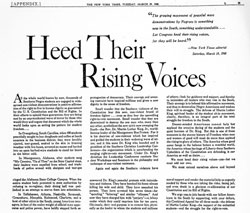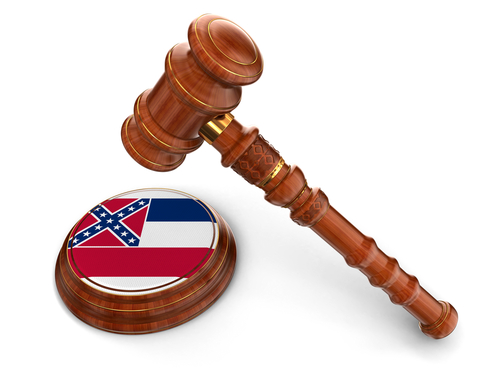Federal appeals judge blasts landmark libel ruling, says it enhances power of overwhelmingly liberal media

Image courtesy of the Library of Congress.
A federal appeals judge on Friday called on the U.S. Supreme Court to overturn the landmark libel ruling New York Times Co. v. Sullivan while chastising his colleagues for trying to stretch the decision’s actual malice standard “like a rubber band.”
In a dissent, Judge Laurence Silberman of the U.S. Court of Appeals for the District of Columbia Circuit said his panel colleagues’ incorrect interpretation of New York Times Co. v. Sullivan is one reason that he is calling for it to be overturned.
Silberman cited a second reason for overturning the decision—what he sees of liberal control of much of the media.
“The increased power of the press is so dangerous today because we are very close to one-party control of these institutions,” Silberman said.
The 1964 Supreme Court decision held that a public figure alleging defamation must show that the speaker acted with actual malice, meaning that the speaker knew a statement was false or acted with a reckless disregard for the truth.
Silberman said the decision increases press power at a time when there is near one-party control of the media, which can be “a threat to a viable democracy.”
“Two of the three most influential papers (at least historically), the New York Times and the Washington Post, are virtually Democratic Party broadsheets. And the news section of the Wall Street Journal leans in the same direction. The orientation of these three papers is followed by the Associated Press and most large papers across the country (such as the Los Angeles Times, Miami Herald and Boston Globe). Nearly all television—network and cable—is a Democratic Party trumpet. Even the government-supported National Public Radio follows along.”
Silberman also said social media “similarly filters news delivery in ways favorable to the Democratic Party.”
Silberman wrote the dissent in a case protecting the human rights group Global Witness for publishing a report implying that two former Liberian officials had accepted bribes. Silberman thought the officials should be able to pursue their libel action.
Silberman cited Justice Clarence Thomas, who has called for a reexamination of New York Times Co. v. Sullivan. Thomas “has already persuasively demonstrated that New York Times was a policy-driven decision masquerading as constitutional law,” Silberman said.
“The holding has no relation to the text, history or structure of the Constitution, and it baldly constitutionalized an area of law refined over centuries of common law adjudication,” Silberman wrote. “As with the rest of the opinion, the actual malice requirement was simply cut from whole cloth. New York Times should be overruled on these grounds alone. …
“I readily admit that I have little regard for holdings of the court that dress up policymaking in constitutional garb. That is the real attack on the Constitution, in which—it should go without saying—the framers chose to allocate political power to the political branches. The notion that the court should somehow act in a policy role as a council of revision is illegitimate.”
Silberman, 85, is an appointee of former President Ronald Reagan. The case is Tah v. Global Witness Publishing.
Hat tip to How Appealing, which linked to news coverage and the decision. Among the publications covering Silberman’s dissent are Politico, Law360, the Washington Post, Above the Law and Courthouse News Service.
Write a letter to the editor, share a story tip or update, or report an error.


